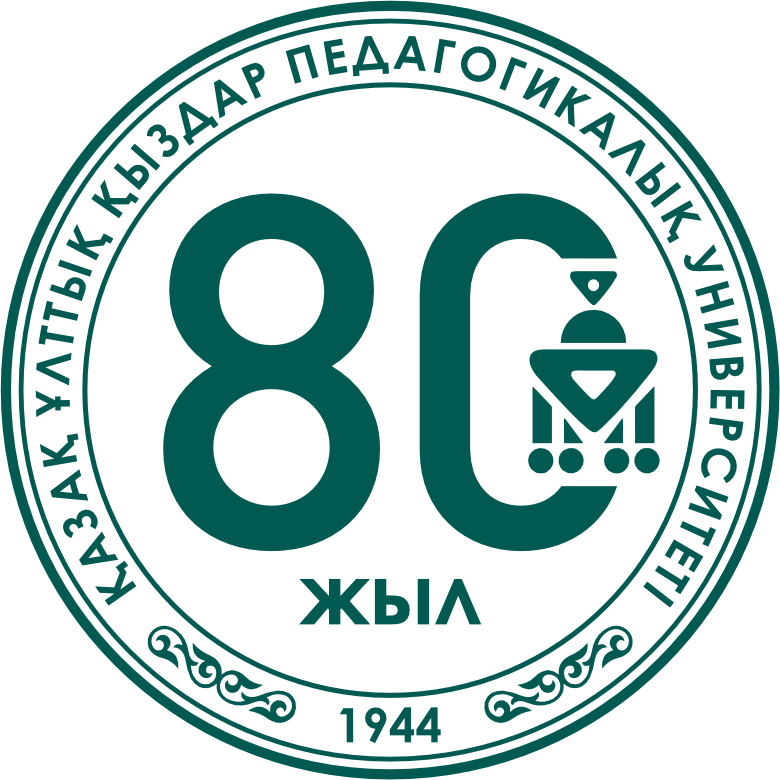6B05301 – Chemistry
-
-
Educational programs
- College
-
Undergraduate
-
Institute of Pedagogy and Psychology
- 6В01101 – Pedagogy and psychology
- 6B01201 – Pre-school Training and Education
- 6B01301 – Pedagogy and Methods of Primary Training
- 6B01403 – Physical Education and Sport
- 6B01801 – Training of specialists in social pedagogics and self-knowledge
- 6B01901 - Special pedagogy
- 6В03102 — Psychology
- Educator and speech therapist of preschool organizations
-
Institute of Philology
- 6B01701 – Kazakh Language and Literature
- 6B01702 – Kazakh Language and Literature at schools with non-Kazakh Training
- 6В01703 – Russian Language and Literature
- 6B01704 – Russian Language and Literature at schools with non-Russian Training
- 6В01705 – Foreign Language: two Foreign Languages
- 6В02301 – Translation studies
- 6В02302 – Philology
-
Institute of Physics, Mathematics and Computing
- 6В01501 – Mathematics
- 6B01502 – Mathematics-Physics
- 6B01503 – Mathematics-Informatics
- 6В01504 – Physics
- 6B05302-Physics
- 6В01505 – Physics - Computer Science
- 6В01506 – Computer science
- 6В01513 – Physics-Electronics
- 6В01514 – Computer Science and Robotics
- 6В06101 - Design of digital analytical educational systems
- 6В06102 – Information Systems
- Institute of natural science
- Institute of Social Sciences, Humanities and Art
-
Institute of Pedagogy and Psychology
- Graduate
- Doctorate PhD
- Institutes
- College
- Student Assistance Center
- Center for Pedagogical Excellence
- Educational and methodical association
- Coordination Council
- Career and Employment
Education
-
Educational programs
- College
-
Undergraduate
-
Institute of Pedagogy and Psychology
- 6В01101 – Pedagogy and psychology
- 6B01201 – Pre-school Training and Education
- 6B01301 – Pedagogy and Methods of Primary Training
- 6B01403 – Physical Education and Sport
- 6B01801 – Training of specialists in social pedagogics and self-knowledge
- 6B01901 - Special pedagogy
- 6В03102 — Psychology
- Educator and speech therapist of preschool organizations
-
Institute of Philology
- 6B01701 – Kazakh Language and Literature
- 6B01702 – Kazakh Language and Literature at schools with non-Kazakh Training
- 6В01703 – Russian Language and Literature
- 6B01704 – Russian Language and Literature at schools with non-Russian Training
- 6В01705 – Foreign Language: two Foreign Languages
- 6В02301 – Translation studies
- 6В02302 – Philology
-
Institute of Physics, Mathematics and Computing
- 6В01501 – Mathematics
- 6B01502 – Mathematics-Physics
- 6B01503 – Mathematics-Informatics
- 6В01504 – Physics
- 6B05302-Physics
- 6В01505 – Physics - Computer Science
- 6В01506 – Computer science
- 6В01513 – Physics-Electronics
- 6В01514 – Computer Science and Robotics
- 6В06101 - Design of digital analytical educational systems
- 6В06102 – Information Systems
- Institute of natural science
- Institute of Social Sciences, Humanities and Art
-
Institute of Pedagogy and Psychology
- Graduate
- Doctorate PhD
- Institutes
- College
- Student Assistance Center
- Center for Pedagogical Excellence
- Educational and methodical association
- Coordination Council
- Career and Employment
-
Educational programs
-
-

Дисциплины ЕНТ
-

Академическая мобильность
-

ECTS
-

Пороговый балл
-

Minor
-
GENERAL INFORMATION ON THE EDUCATIONAL PROGRAM
Type of educational program
current
Name of the educational program
6B05301-Chemistry
Area of the educational program
6B05 Natural sciences, mathematics and statistics
Direction of training
6B053 Physical and chemical sciences
Education Program Group
6В053 Chemistry
License for conducting educational activities No., date, month, year
The educational program is implemented on the basis of an annex to License No. KZ75LAA00018542 dated August 04, 2020 in the direction of personnel training 6B053-Physical and chemical sciences, issued by the RSU "Committee for Quality Assurance in Education and Science of the Ministry of Education and Science of the Republic of Kazakhstan".
Number in the register of EP and date of registration/update
UNT items for
Chemistry
Biology
NQF level
6th level
Degree awarded
Bachelor of Science in the educational program 6B05301-Chemistry.
Accreditation of the educational program
Specialized accreditation: Independent Agency for Accreditation and Rating, certificate No. 12018901, date of issue: 05/24/2019, accreditation validity: 05/23/2024 (5 years).
Educational program rating
NPP "Atameken" - 8th place (2021)
Total Academic Credits
240
Training period
4 year
-





